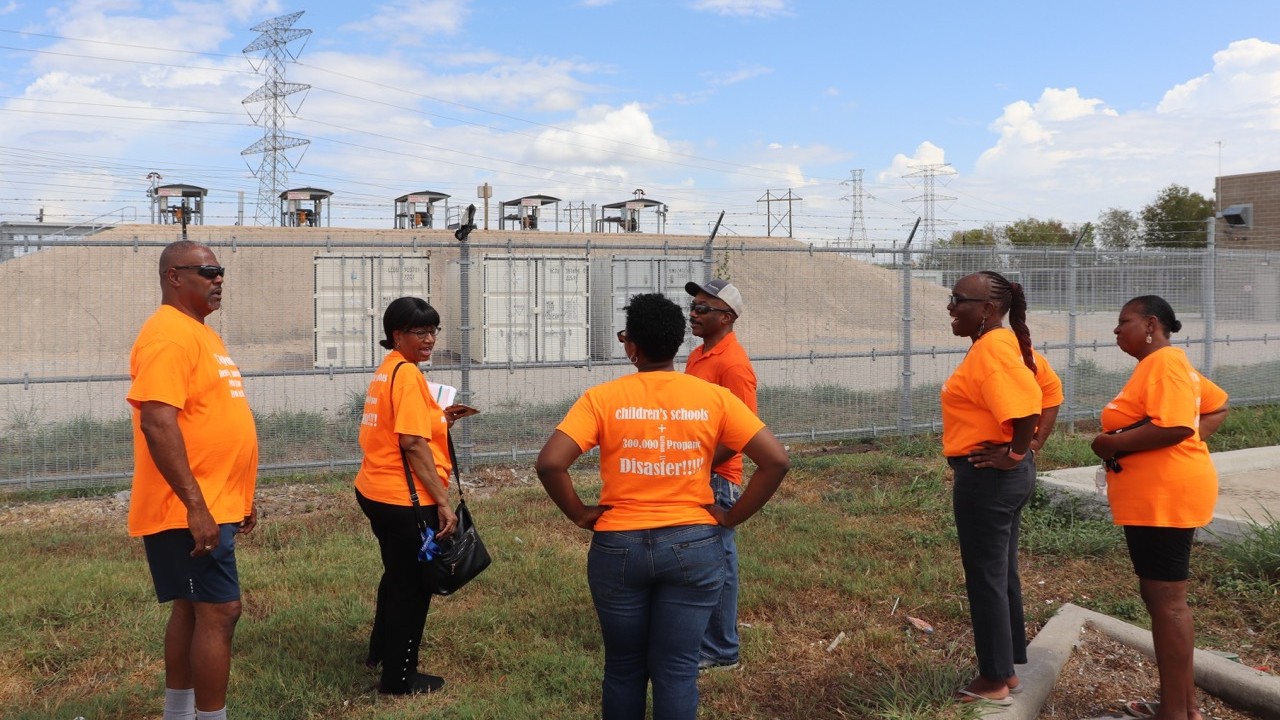This story was originally published by Capital B.
With their heads bowed, eyes shut, and hands locked, the Southwest Crossing Community Initiative starts every meeting with a prayer: “Please, protect us from a deadly explosion.”
“And please, cover us … and ease our minds.”
Southwest Crossing is an aging community in Houston where nearly 20 percent of residents are over 65. They know, as it is, the average American is expected to live only a decade after retirement. It’s even less for Black people, and much of the disparity concerns the daily stress of racism.
Since 2021, the group has been in a life-draining fight with CenterPoint Energy, a $40 billion company. That year, CenterPoint, the only investor-owned electric utility company in Texas, quietly announced a plan to build a facility holding 300,000 gallons of liquid propane against the neighborhood’s back wall.
“It’s environmental racism, that’s obvious,” said Southwest Crossing resident Marilyn Rayon. “It’s also mental warfare. We’ve all suffered from lack of sleep, anxiety, mental issues.”
While environmental justice activists often focus on elevated cancer risks and respiratory illnesses caused by fossil fuel infrastructure, chemical exposure, and pollution, these residents have shifted their attention to the mental health impacts.
The small group of Black Southwest Houston residents argue that the movement to ensure environmental parity should factor in these sometimes invisible harms.
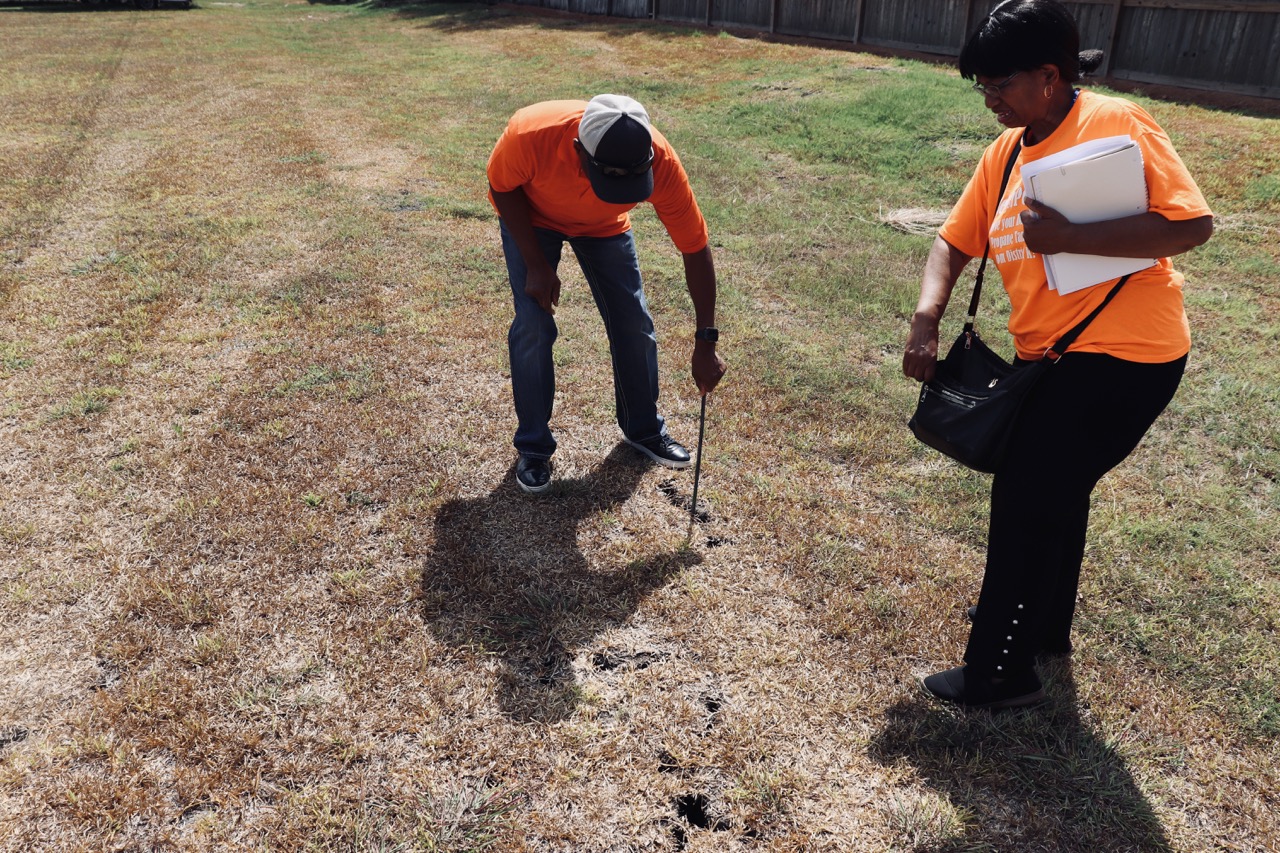
The group’s mental health struggles stem from what it feels were deceitful actions used by the energy company to place the facility in the neighborhood and the daily worry of a leak or explosion. For some, it has rehashed trauma from the disasters that have defined parts of their life, from experiences in the U.S. military to explosions at neighboring chemical plants. The group of mainly retirees says they can barely sleep and require therapy and anti-anxiety medication to get through the days.
Their fears have merit. Propane — a fossil fuel-based energy source that is the byproduct of natural gas processing and petroleum refining — has been touted as a more reliable energy source during winter months, but it comes with risks. Because propane is heavier than air, if it leaks, it settles quickly and lower to the ground, leading to an even greater risk of ignition, fire, and explosion than natural gas. A 2014 report says there are about 300 fires and explosions annually at such facilities.
While CenterPoint allowed the legal minimum of 18 days for residents to object, city officials confirmed that COVID-19 precautions and mail delays denied the neighborhood a chance to fully voice its objections to the facility. So last November, it became operational, but the fight just began.
Now, once again, with little engagement, CenterPoint is trying to run a new natural gas pipeline through their properties.
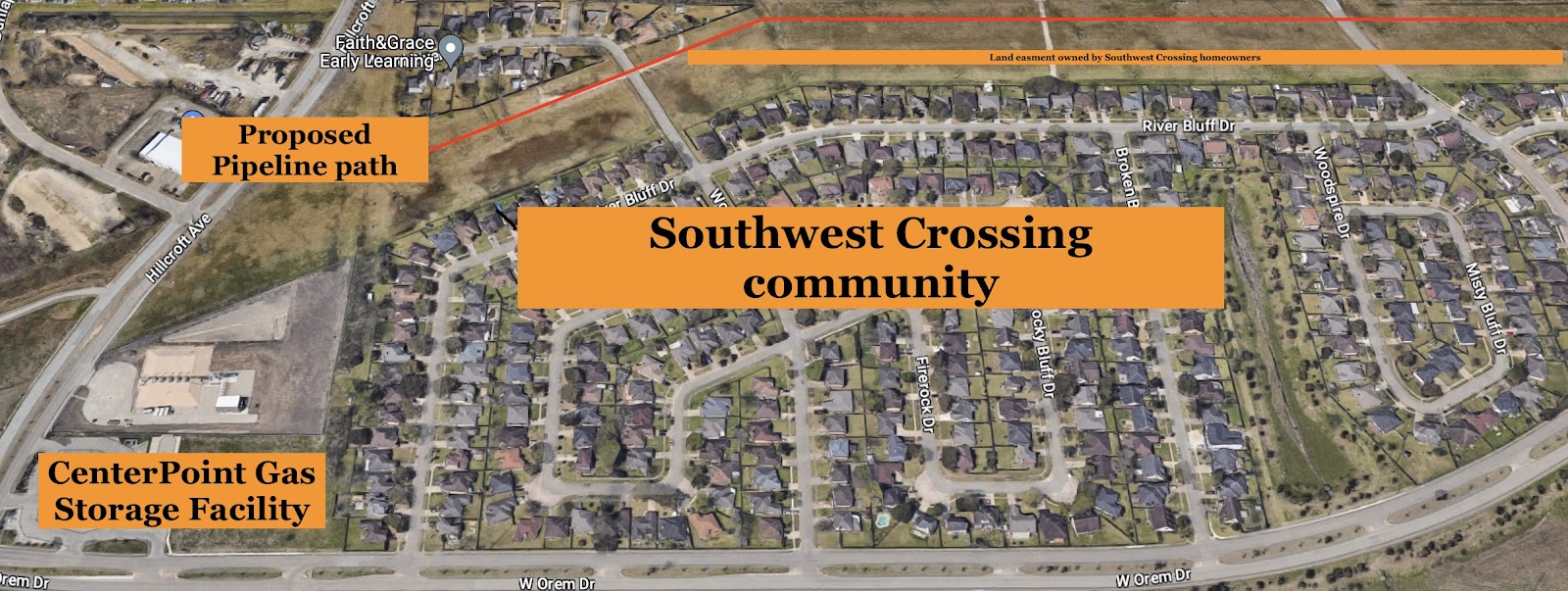
Residents say they became aware of the plan to build the new pipeline only after noticing company employees surveying their property without permission. Because the pipeline is for gas distribution to CenterPoint customers from a CenterPoint-owned gas facility and not a transmission line between two facilities, it does not require a new operating permit from the state of Texas.
In a statement to Capital B, CenterPoint outlined various points of communication with Southwest Crossing residents since 2021 and said the company is “committed to open communications with our customers and community members.” The outline did not mention any communication regarding the pipeline.
Based on the proposed map, CenterPoint may likely distribute the gas to Houston’s quickly growing, majority-white suburbs just west of Southwest Crossing. CenterPoint declined to share where the gas would be transported.
According to residents, CenterPoint has offered homeowners $9,500 to purchase pieces of their undeveloped land to run the pipeline. As residents attempt to stifle the plan — roughly two dozen households have declined the offer — the use of eminent domain is looming in the predominantly Black neighborhood.
Scientific studies dating to the early 2000s have called for greater attention to the mental health struggles of living near industrial sites. It has been connected to insomnia, increased levels of depression and anxiety, and even the fear of venturing outside your home.
“You work all your life and give and go through so much,” said Rayon, “and at the end of your life, after you’ve worked to keep the community nice, they just drop something in your neighborhood that they know is dangerous.”
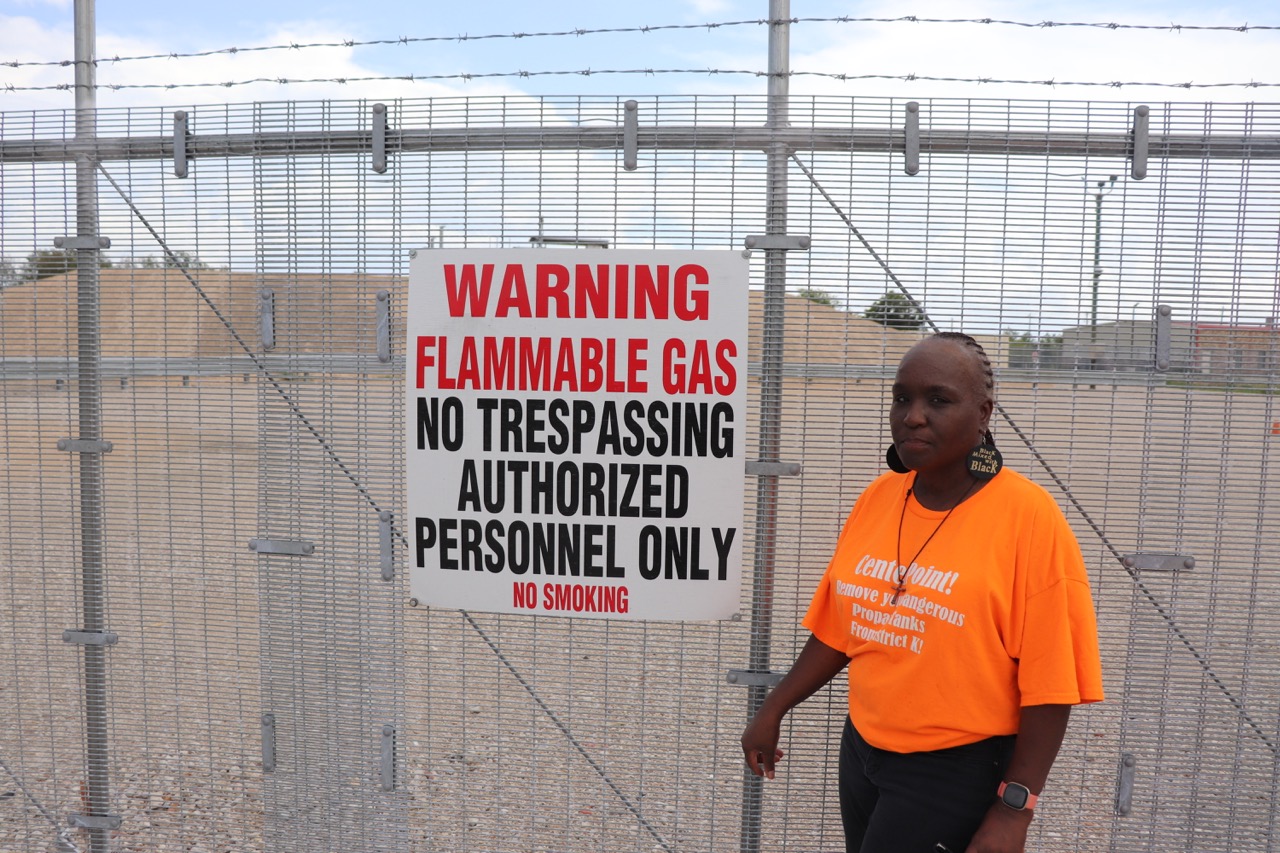
Several members of the collective, which includes about a dozen residents, say therapy and counseling sessions have helped, but it solves nothing if the threat of disaster remains imminent.
The added infrastructure to their community compounds risks they’ve struggled with since the housing tract was built in the 1980s. The neighborhood is less than 2 miles from an air pollution hotspot where the cancer risk from air pollution is four times higher than the Environmental Protection Agency’s limits.
Within 1 mile of the community, there are already three pipelines carrying natural gas, crude oil, and other highly volatile liquids.
Climate change and a growing city
The environmental justice crisis ruminating in the backyards of the Southwest Crossing neighborhood is the product of climate change and an unstable energy grid that has failed to accommodate the nation’s second-fastest-growing metropolitan area.
It exemplifies a growing worry across many of the South’s largest and quickest growing cities, like Dallas, Atlanta, and Jacksonville, Florida. When a city grows, infrastructure — sewage and drinking water systems, streets and highways, and electric grids — struggles to keep up. Construction follows, but throughout U.S. history, infrastructure build-out has routinely caused displacement and increased environmental burdens for cities’ most marginalized communities.
The fatal winter storm Uri in 2021 created a flashpoint for Texas’ struggles. After an estimated 700 people died and 5 million Texans lost power, the energy sector explored options to strengthen the grid.
For CenterPoint, that led to a $40 billion spending plan to strengthen its position on the electric grid. The plan included retiring coal plants and building out more solar power generation, but also nearly $20 billion in national gas expansion.
Increasing their natural gas and propane storage capacities is key to that expansion. The Southwest Houston facility is CenterPoint’s fifth built in Houston since 2019; four facilities are in neighborhoods that are majority people of color.
CenterPoint said the company is “committed to the safe, reliable delivery of natural gas” and the new facilities will help ensure “enough supply to keep natural gas flowing to customers during those times of peak demand, such as during the 2021 winter storm.”
During emergencies, when the demand for electricity spikes, stored propane and natural gas can be rapidly inserted into the pipeline system. This significantly decreases the likelihood of service disruptions for customers in need.
However, environmentalists contend that the practice is an extension of the environmental racism that has plagued Black communities like Southwest Crossing for generations and limits investment into more renewable and reliable energy sources such as wind and solar power.
“If you look at where these five new [CenterPoint propane storage] plants are, four are in Black and [Latino] neighborhoods,” said resident Angela King. “Why is that?”

Texas leads the nation in wind power generation, but following Uri, the state’s legislature abruptly ramped up its criticism of renewables in favor of fossil fuels. While Texas’ deadly power outages were partly caused by frozen wind turbines, most of the power knocked offline came from natural gas.
The trend is found nationally. Despite goals to move on from fossil fuels, the U.S. is growing its natural gas capacities like no other. Between now and 2050, the U.S. is expected to be responsible for more than one out of three of the world’s new oil and gas projects.
The continued use of natural gas means the continued extraction of fossil fuels and the use of pipelines. Nationwide, pipelines are most often found in Black neighborhoods and prone to regular leaks, accelerating climate change and posing deadly risks for neighboring communities.
Last Christmas Eve, a leak at a similar CenterPoint propane facility in Indiana sent half a dozen people to the hospital. The company initially blamed the leak on its customers’ appliances before a state investigation found the company at fault and fined CenterPoint more than $100,000.
In Southwest Crossing, “people pack a bag and carry it in their car just in case they need to go because of a leak or explosion,” King said.
‘Boom, we’re gone’
Brittney Stredic said she and her neighbors are closer than ever, they “talk and text and share time all the time now.”
As their relationships have grown over shared meals and gatherings in each other’s living rooms, they’ve taken the fight to legislators. They say they haven’t had much success with their city council representative, Martha Castex-Tatum. As she runs unopposed for reelection this November, 15 percent of her corporate donations have come from CenterPoint.
However, at the state level, with support from state Sen. Borris Miles, they’ve been able to help draft four bills related to environmental permitting. One bill passed unanimously through the Texas House of Representatives. It would’ve increased the time allotment for impacted residents to submit opinions for polluting sites like the one in their backyard, although it was never brought to a vote in the state’s backlogged Senate.
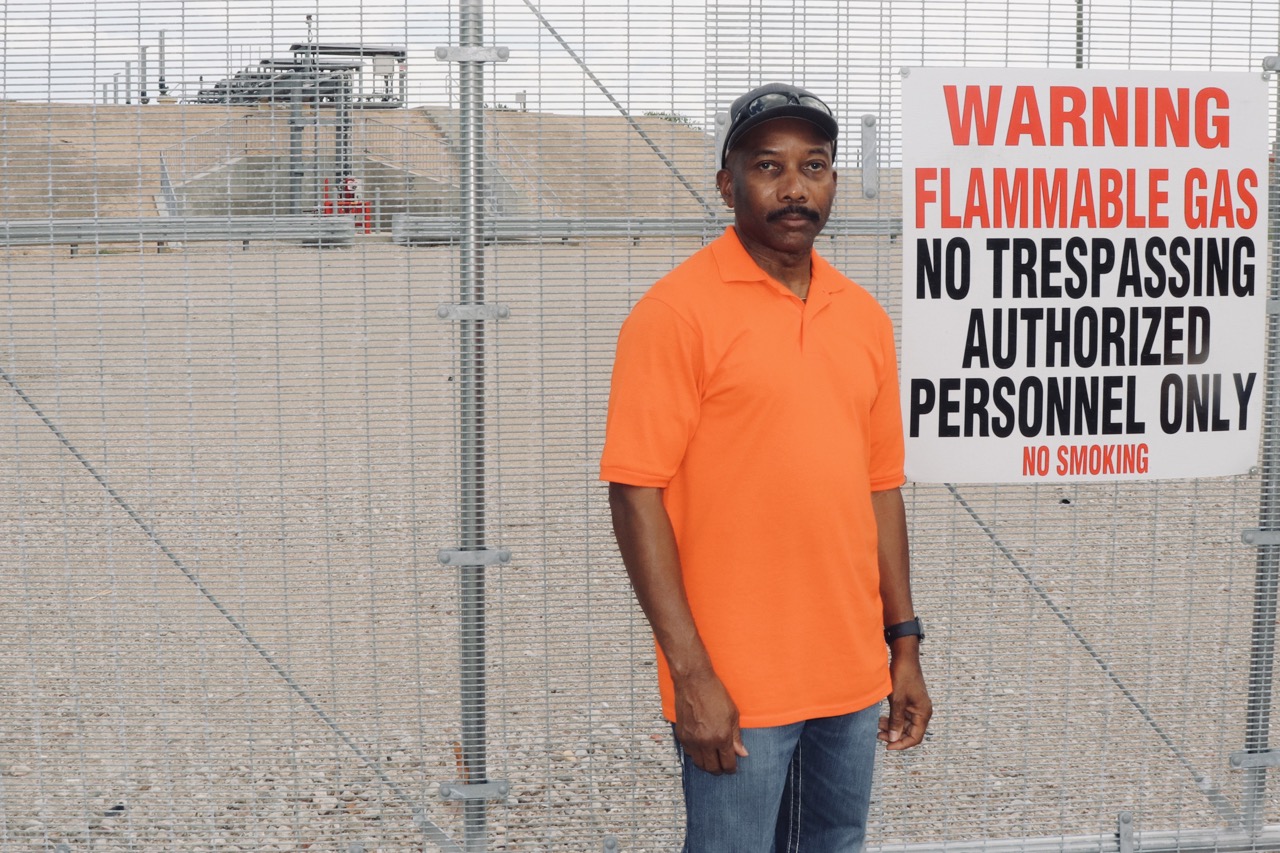
However, Stredic knows their growing bond is rooted in trauma and disappointment.
As the pipeline battle continues, the community’s options dwindle. If CenterPoint were to request the use of eminent domain, more likely than not, Texas’ conservative courts would support it. In recent years, as other states have attempted to restrict the use of eminent domain, Texas has sharply increased the number of entities allowed to use it.
The group has considered bringing a civil rights complaint to the Department of Justice or EPA. Still, they know the process typically takes three years to offer results, and CenterPoint could easily build the pipeline within that time.
“There’s so much land in Texas, why here? Why in the neighborhood?” Stredic said. “This situation has become my greatest fear.”
These stressors and fears, she said, can contribute to poor health outcomes. A key member of their coalition, Eugene Pack, died unexpectedly last year.
Since then, King finds herself up at 2 a.m. daily reading about the climate and health impacts of gas facilities and pipelines. Down the street, Zachary Petitt is lucky to get 30 minutes of rest at a time.
Kenneth Burgess can barely talk about the trauma the experience has caused — and resurfaced. He worked at a chemical plant for 30 years, surviving three explosions. In 1989, he witnessed 23 of his co-workers perish.
“I decided to live 30 miles from where I worked for a reason,” he said, “and then they still brought it to my neighborhood.”
For Rayon and her husband, Leo, it has brought up the trauma of war abroad and at home.
“My husband was drafted for the Vietnam War. He was in German territory,” Rayon recalled. “And when he saw [CenterPoint Energy] building that gas storage tank, he almost had a heart attack because he said it reminded him of a bunker in Vietnam.”
Rayon fears her neighborhood will become the target of a hate crime. Since 2016, the number of hate crimes in Texas has risen from 167 to 549 in 2022. Anti-Black attacks made up the largest share of crimes by far.
If someone wanted to target the 80 percent Black neighborhood, she said, all they’d have to do was shoot at the storage tank and “boom, we’re gone.”

